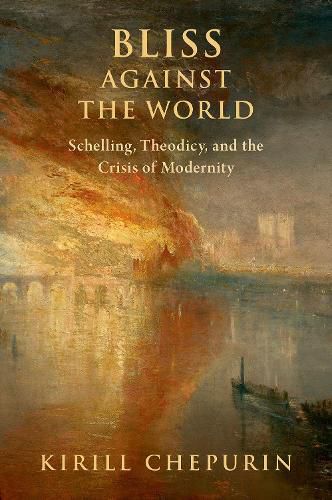Readings Newsletter
Become a Readings Member to make your shopping experience even easier.
Sign in or sign up for free!
You’re not far away from qualifying for FREE standard shipping within Australia
You’ve qualified for FREE standard shipping within Australia
The cart is loading…






The concept of bliss, in its connotations of beatitude and salvation, may seem of little relevance to so-called secular modernity. Bliss Against the World argues otherwise by advancing a novel framework of the entanglement between modernity, Christianity, and bliss through the thought of German Idealist and Romantic philosopher Friedrich Schelling (1775--1854). In Schelling's concept of bliss (Seligkeit), the idea of salvation from the world mutates into a burning concern with the negativity of the modern world, and with the way modernity inherits the Christian promise of a non-alienated future that never arrives. Throughout his thinking, Schelling grapples with the question of theodicy: Can this negative world be justified? And what would it mean to be free of the world--to enact bliss right now--when the idea of otherworldly salvation increasingly loses its conceptual relevance? This leads Schelling to conceptualize bliss as what refuses or apocalyptically annihilates this world and its divisions and burdens. Bliss Against the World reinterprets Schelling's philosophical trajectory from the 1790s to the 1840s, showing his metaphysics, philosophy of religion, and natural philosophy to be underwritten by the apocalyptic tension between bliss and theodicy. It argues that this tension is located likewise at the heart of modernity and reconstructs the Schellingian genealogy of the modern age as intensifying what may be termed the general Christian contradiction. It also focuses on Schelling's anxiety about the possibility of universal history in the dark and de-centered universe and critiques his Romantic construction of humanity and his geo-racial theodicy of history--a theodicy that refracts and legitimates the violent logics of post-1492 modernity, including European colonialism, racialization, and transatlantic slavery.Bliss Against the World thus theorizes bliss not only with, but also against Schelling, who emerges from this book as a key thinker of modernity, and of the Christian-modern trajectory as a path to salvation in the shadow of whose failure we continue to live.
$9.00 standard shipping within Australia
FREE standard shipping within Australia for orders over $100.00
Express & International shipping calculated at checkout
The concept of bliss, in its connotations of beatitude and salvation, may seem of little relevance to so-called secular modernity. Bliss Against the World argues otherwise by advancing a novel framework of the entanglement between modernity, Christianity, and bliss through the thought of German Idealist and Romantic philosopher Friedrich Schelling (1775--1854). In Schelling's concept of bliss (Seligkeit), the idea of salvation from the world mutates into a burning concern with the negativity of the modern world, and with the way modernity inherits the Christian promise of a non-alienated future that never arrives. Throughout his thinking, Schelling grapples with the question of theodicy: Can this negative world be justified? And what would it mean to be free of the world--to enact bliss right now--when the idea of otherworldly salvation increasingly loses its conceptual relevance? This leads Schelling to conceptualize bliss as what refuses or apocalyptically annihilates this world and its divisions and burdens. Bliss Against the World reinterprets Schelling's philosophical trajectory from the 1790s to the 1840s, showing his metaphysics, philosophy of religion, and natural philosophy to be underwritten by the apocalyptic tension between bliss and theodicy. It argues that this tension is located likewise at the heart of modernity and reconstructs the Schellingian genealogy of the modern age as intensifying what may be termed the general Christian contradiction. It also focuses on Schelling's anxiety about the possibility of universal history in the dark and de-centered universe and critiques his Romantic construction of humanity and his geo-racial theodicy of history--a theodicy that refracts and legitimates the violent logics of post-1492 modernity, including European colonialism, racialization, and transatlantic slavery.Bliss Against the World thus theorizes bliss not only with, but also against Schelling, who emerges from this book as a key thinker of modernity, and of the Christian-modern trajectory as a path to salvation in the shadow of whose failure we continue to live.